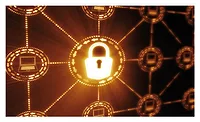People are less concerned with their cyber safety despite significant rise in COVID-19 related attacks

Less than one in three (31%) Americans are concerned about their data security while working from home during the COVID-19 global health crisis, according to the new 2020 Unisys Security Index. The survey found that overall concerns around internet security (including computer viruses and hacking) have plunged in the last year, falling 13 points from 2019 and ranking the lowest among the four primary areas of security surveyed for the first time since 2010.
The findings come despite a significant rise in cyberattacks during the pandemic: the Federal Trade Commission (FTC) reported more than 52,000 cases of reported fraud related to COVID-19. According to the FBI, online crimes reported to the Bureau's Internet Crime Complaint Center (IC3) have increased by 400% as a result of the pandemic, with as many as 4,000 incidents per day.
The survey also found that most Americans (70%) are not concerned about the risk of being scammed during or about the health crisis. This lack of concern was even more stark compared to the rest of the world, as Americans were 24% less likely to report concern about a data breach during the pandemic as compared to the global average. Americans were much more likely to be concerned about their country's economic stability, with 60% registering serious concern (extremely or very concerned), and the stability of the country's health infrastructure, with 55% extremely or very concerned.
Personal Safety Concerns Rise to the Top
The survey – the longest-running snapshot of consumer security concerns conducted globally – also asked U.S. respondents about their concerns related to personal security, national security and financial security. Concerns around personal safety and natural disasters and epidemics increased by 17% and 6% from 2019, respectively; however, that was met with a drop in concerns over national security, which saw a 19% decrease from 2019.
"It's not surprising to see people's level of concern for their personal safety jump in light of the global health crisis. However, the fact that it is not only matched by, but exceeded by, a drop in concerns around hacking, scamming or online fraud reflects a false sense of consumer security," said Unisys Chief Information Security Officer Mat Newfield. "Hackers target healthcare and essential services organizations looking to steal intellectual property and intelligence, such as details on national health policies and COVID-19 research. And hackers are relying on tricks like 'password spraying,' which involves an attacker repeatedly using common passwords on many accounts to gain access, putting our most critical infrastructures at risk potentially from the click of a single working-from-home employee."
Looking for a reprint of this article?
From high-res PDFs to custom plaques, order your copy today!





